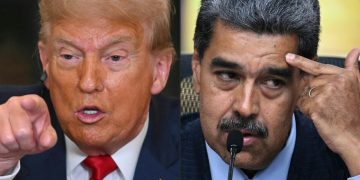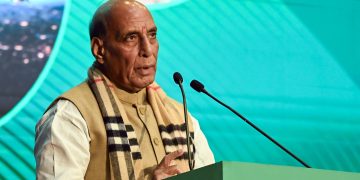New Delhi: No one has supported the military regime and undermined democracy in Pakistan in so many ways as much as the West, External Affairs Minister S Jaishankar has said.
He described the threat of terrorism as a major “collective challenge” facing the world alongside climate change and growing poverty.
In an interview to Danish daily Politiken, Jaishankar criticised Europe for backing Pakistan when it was under military dictatorship.
“Our borders have been violated by Pakistan in Kashmir ever since our independence in 1947. And what have we seen in the eight decades since then,” he asked.
“That large, democratic Europe, to use your own term, has stood side by side with military dictatorships in the region.”
“No one has supported the military regime – and undermined democracy in Pakistan in so many ways – as much as the West,” he said.
The external affairs minister was in Copenhagen as part of his three-nation tour of the Netherlands, Denmark and Germany.
Jaishankar emphasised that India supports countries’ sovereignty and internationally recognised borders.
“But my worldview and my view of Europe are shaped by my own experiences. You talk about the inviolability of borders — well, why don’t we start with the inviolability of my borders?”
“That’s where my world begins. But we’ve always been told that we had to solve that ourselves,” he said.
Jaishankar’s remarks came when asked about “democratic” India’s support to authoritarian Russia in terms of its large oil purchases when Moscow has been waging a war against Ukraine.
On India’s oil purchases from Russia, Jaishankar said Europe was driving up energy prices for all developing countries, including India by sourcing crude oil from the Middle-East.
“Wealthy Europe turned to the Middle-East because it had a problem with Russia and offered inflated prices to get oil redirected to Europe.” “So what happened was that many countries — not just us — could no longer afford it. The major oil companies didn’t even respond to purchase offers because they were too busy selling to Europe,” Jaishankar said.
“What was the rest of the world supposed to do? Say ‘okay’, we’ll just do without energy because Europeans need it more than us,” he asked.
Jaishankar also described terrorism as a major global challenge.
“Of the major collective challenges today, I would place terrorism at the top – alongside climate change, growing poverty, and the consequences of the COVID-19 pandemic in the Global South,” he said.
In a separate interview to Danish broadcaster TV 2, Jaishankar said the understanding between India and Pakistan on May 10 to stop fighting and military actions was firmed up “directly” by the militaries of the two sides.
The external affairs minister’s comments came against the backdrop of US President Donald Trump’s claim that Washington played a role in brokering the truce.
“We had the conflict for a few days (and) we resolved that conflict for the moment in its particular military form through an understanding for the cessation of fighting and military action. And this was something that we negotiated directly between the militaries of the two countries,” he said.
“The trigger for it was that after we had had fighting for a few days, we hit them very hard on the morning of (May) 10..and that caused the Pakistanis to say, ‘Ok, we’re prepared to stop the firing and reach an understanding about how to deal with it.'” Under Operation Sindoor, India carried out precision strikes on nine terror infrastructures early on May 7 in response to the April 22 Pahalgam terror attack.
Following the Indian action, Pakistan attempted to attack Indian military bases on May 8, 9 and 10. The Pakistani attempts were strongly responded to by the Indian side.
Foreign Secretary Vikram Misri on May 10 announced that India and Pakistan reached an understanding to stop all firings and military actions on land, air and sea, with immediate effect.
PTI






































